Two International Students Share What It’s Like to Earn Their Master’s Degrees Abroad
Studying abroad means adjusting to both a new academic environment and a new country. With fourteen renowned graduate programs, it’s no surprise students from around the world pursue Emerson to achieve their academic goals. Thirteen percent of our graduate students are international, hailing from countries like China, Columbia, and Italy. And while starting grad school can be difficult for anyone, it comes with additional complexities as an international student.
From navigating cultural differences to more practical concerns, international students face unique challenges when transitioning to life in the United States. We wanted to gain further insight into these experiences and highlight the array of resources available to the Emerson community. I spoke with two international students across different graduate programs to discuss their challenges and successes.
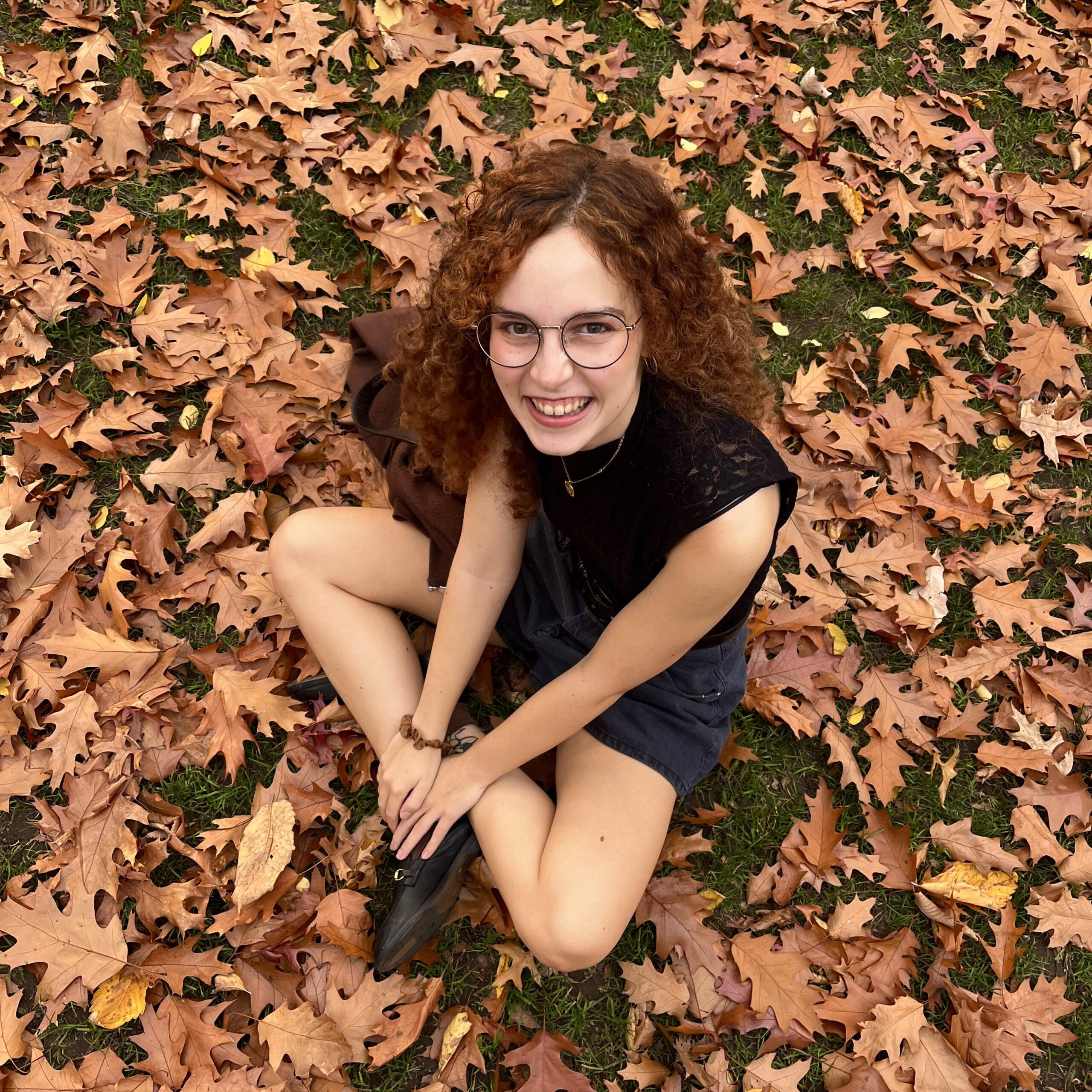
Meet Robin Van Impe: Robin (she/her) is originally from a small town in Belgium and is about to finish her MFA in Creative Writing on the fiction track. Robin has served as Emerson’s Representative of the Graduate Student Association (GSA) since September 2022 and is the current GSA president.
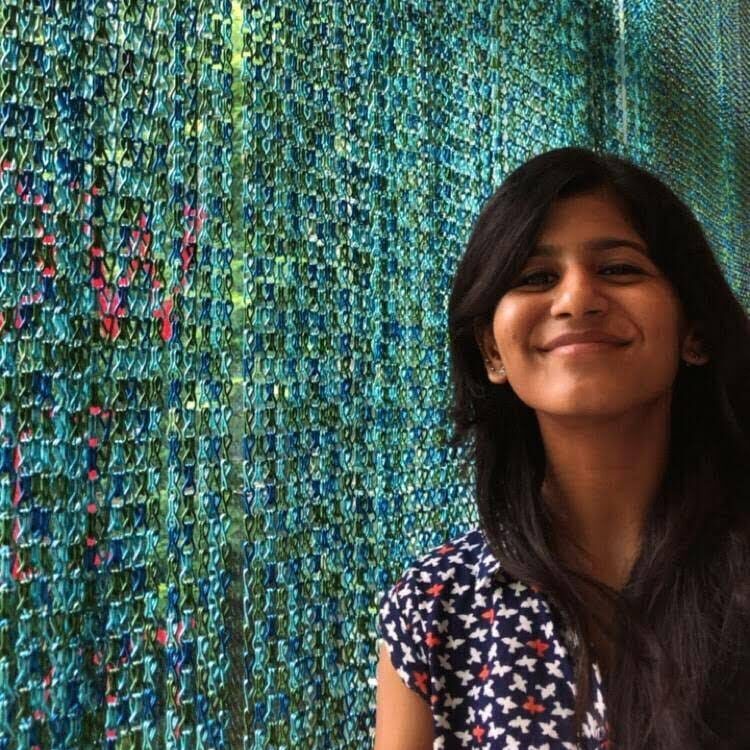
Meet Parvathy Sankunni Nair: Originally a practicing lawyer, Parvathy (she/her) is from Chennai, a city in the south of India. Parvathy is in her first semester of Emerson’s MA Publishing and Writing program.
Why did you choose to earn your Master’s degree in the United States?
Robin: “I studied abroad [during undergrad] in Virginia right before the pandemic. When I went back home, the pandemic started and I struggled to find a job in my field (journalism). I had always wanted to do something with literature and writing, and initially enrolled in Emerson’s Publishing and Writing MA. I later switched my major to the Creative Writing MFA because of my desire to teach college writing, for which you need a terminal degree (MFA).” Robin wanted to learn more about the craft of writing, and is happy she made the program transfer to align with her career goals.
Parvathy: “Publishing is a pretty niche field, and I wanted to be in the best place possible to pursue it. After a lot of reading and research, I realized that the U.S. has some of the top programs and opportunities in the publishing industry. Emerson, in particular, stood out to me for its hands-on approach and focus on the future of publishing. So, here I am, ready to dive in!”
How has your experience at Emerson been so far?
Both Robin and Parvathy acknowledge that the experience has its ups and downs, as any transition does.
Robin: “Being an international student comes with a lot of extra costs. That being said, there are some truly wonderful people at Emerson who have helped me along the way and have improved my experience.”
Parvathy: “It’s been great! Emerson has a really creative and welcoming atmosphere. The transition to the States has had its ups and downs, but overall, it’s been an enriching experience.”
What is your favorite thing about Emerson & Boston?
Robin: “I adore fall in Boston. I sat in the [Boston] Common recently and cried because I might not see the leaves change here next year. My favorite thing about Emerson is the friends I made. Jessie, whom I live with, and Emma, who was one of my first friends in the city, have made my time here hard to let go of.”
Parvathy: “My classes here have been fantastic. I really love how immersive and interactive they are. It’s been really energizing to be surrounded by people who are excited about the same things as I am.”
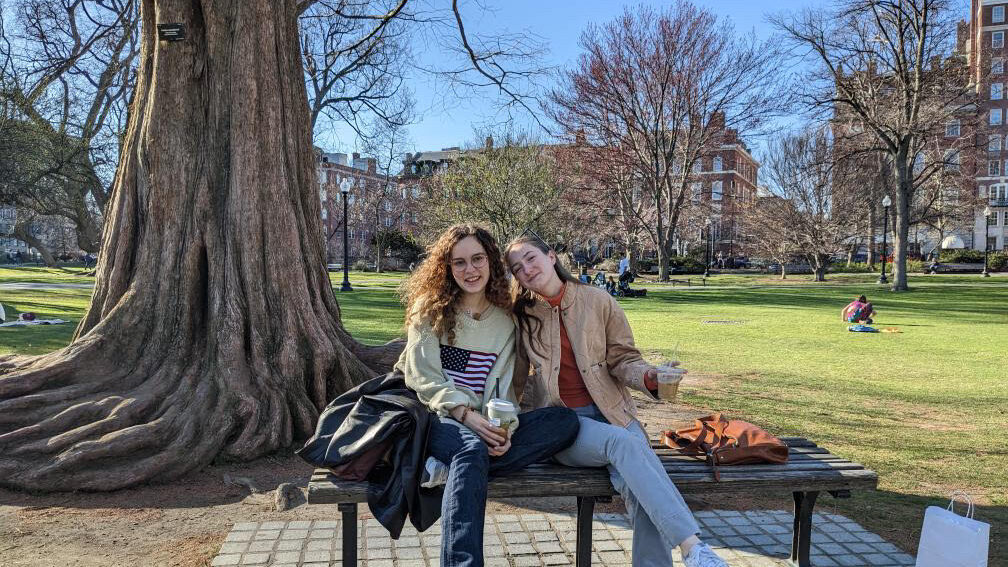
How did you feel about the application process at Emerson as an international student? How did the process differ from your country’s school admissions?
Robin: “Where I come from, education is mostly free and you just enroll. If you don’t succeed, you just study something else. As an international student, there are visa costs, external degree evaluation costs, language test costs, and you have to pay tuition to do internships. All of that adds up.”
Parvathy: “The application process at Emerson was quite streamlined, but it definitely took some getting used to compared to the admission process back in India. There’s a lot more emphasis on personal statements and creative portfolios, which is different from the more exam-focused approach we have in India. I also found the visa application and financial documentation requirements to be a bit daunting.”
What was the most difficult part of transitioning to life in Boston or the United States as an international student?
Parvathy: “First, getting back into the student mind space after being away from school for a while was a bit tricky for me. It took some time to adjust to the routine of classes, assignments, and deadlines again. I can’t say I’m fully there yet, even two months into the program, but with the classes being so hands-on and engaging, the transition has been smoother.
“As for my second challenge, well, it’s not even winter yet, and I’m already wrapped up in three layers and shivering, even when my friends call the weather ‘pleasant.’ So yes, I’m a little apprehensive about the weather. I’m a child of the tropics—Chennai is coastal, and I’m only used to hot, humid days year-round. So, Boston’s cold is going to be a whole new experience for me, and I’m definitely nervous about what the infamous winters will bring. But so far, I’m managing, getting used to the layers, and enjoying the lovely fall colors.”
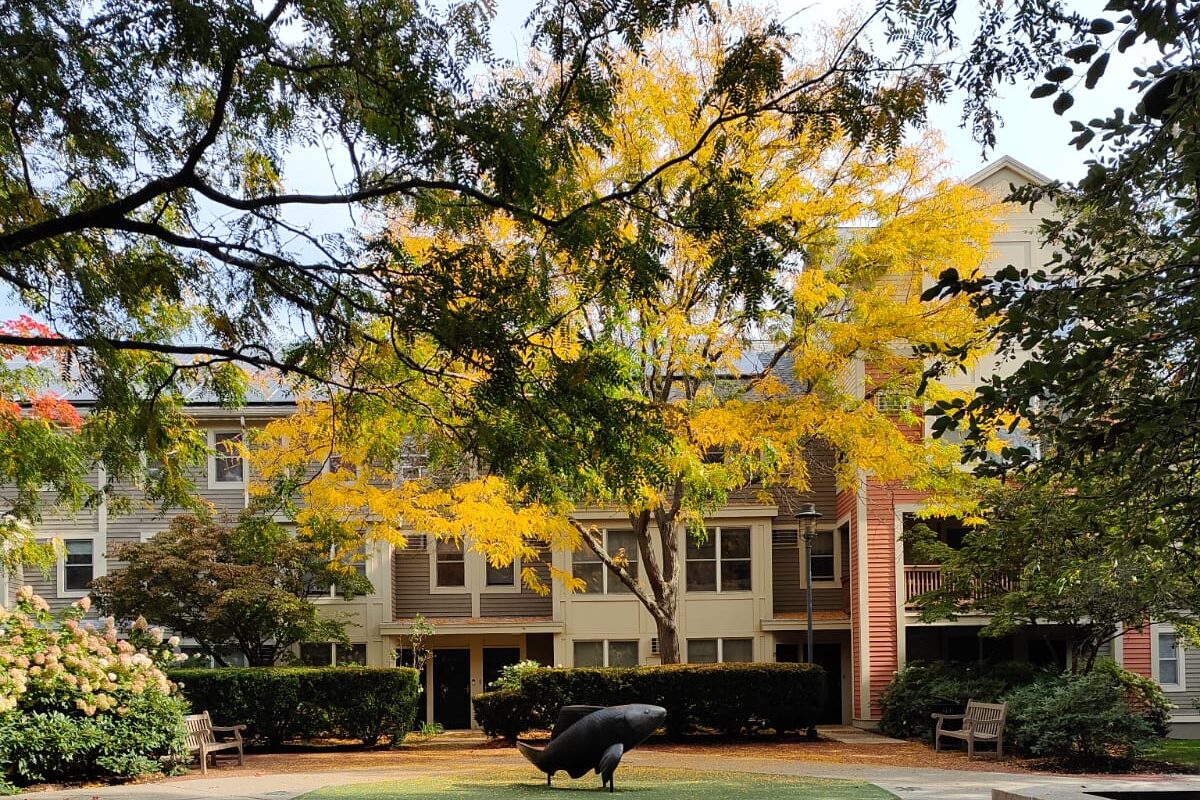
Where did you study for your undergrad? If not in the United States, how does the academic environment at Emerson differ from your schooling in your home country?
Robin: “As a first-generation college student, I didn’t realize how important it is to build a connection with your professors outside the classroom. It wasn’t something I was ever taught. In Belgium, you often sit in a big auditorium where you’re just a number. It’s been a really good change, honestly.”
Parvathy: “I completed my undergrad in law back in India, and the academic environment here at Emerson is quite different. In India, the structure is more rigid, with a strong focus on exams and theory. At Emerson, I feel like the learning is more exploratory, with a lot of emphasis on practical applications and creativity. It’s more about critical thinking and collaboration, which I really appreciate.”
Have you used any campus resources to help with your transition or answer any questions you may have had? Were they helpful?
Robin: “The Office of International Student Affairs (OISA) has been fantastic. The events they organize, and the information and guidance they provide, all of it has been invaluable. Emerson’s Career Development Center has also been a great help; specifically Tamar Gaffin-Cahn who is amazing at what she does. She provides great help with resumes and cover letters.”
Parvathy: “Yes, I’ve used a few campus resources, like the Office of International Student Affairs, which was really helpful in navigating the visa process and all the paperwork in general. I’ve also attended some orientation sessions, which were great for making connections and learning more about the campus.”
Were there any particular professors, staff, or student groups that have made a positive impact on you?
Robin: “I have joined as many things as possible on campus. Grad school isn’t just about classes, it’s about making connections. I started Emerson College Book Club here with alumna Madison Muschalek, I’ve become the Fiction Editor of Redivider, I regularly go to International Graduate Student Organization (IGSO) events, etc. These orgs helped me make friends and find my passion. Professors Mako Yoshikawa and Rick Reiken have been pivotal in my journey as a writer. They were the first to like my writing, which encouraged me to keep going. Professor Margot Douaihy, who I’m currently doing a directed study with, has been an immense resource in helping me pursue my research interests and advising me on further steps and education.
“But I think most of all, Shaylin Hogan, Senior Program Manager from the Office of Graduate Studies, and my supervisor, made the biggest impact on me. She showed me what a good manager is like. She took a chance on me and gave me a job when I was about to give up and I couldn’t be more grateful for all she’s done for me over the years.”
Parvathy: “Everyone I’ve interacted with has been really warm and wonderful. The International Graduate Student Organization has been super proactive in making sure we’re connected and supported, which has been great as I adjust to life here. The Office of International Student Affairs has also been a huge help, especially with navigating the more technical parts of being an international student, like visas and paperwork. They’ve made the whole process a lot less overwhelming. Overall, the support system at Emerson has really helped me feel welcome and settled.”
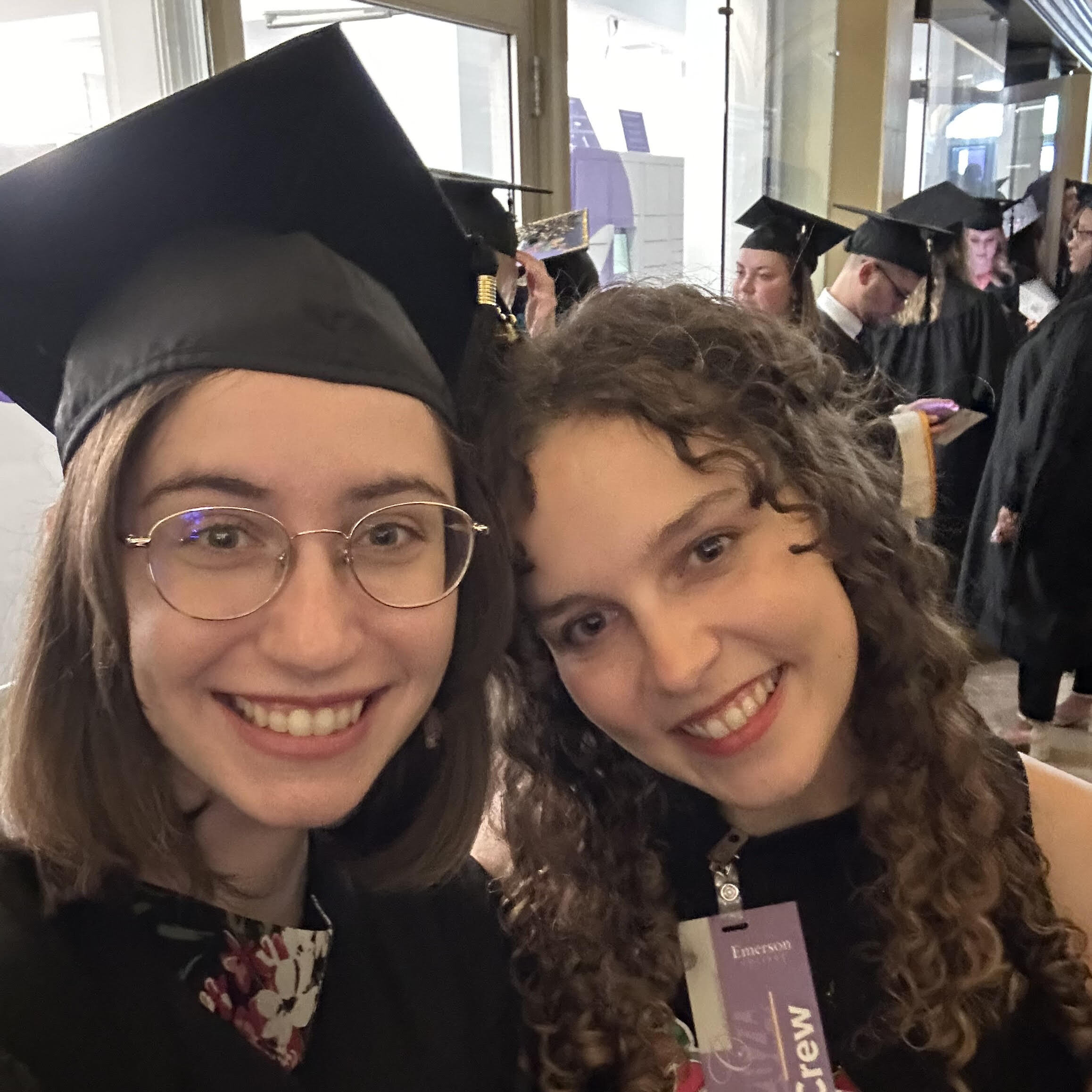
What advice would you give to new international students at Emerson?
Robin: “Have a plan A, plan B, and plan C. I know it’s harsh, but your plan A is most likely not going to work out. You may be more qualified than everyone else, but if you need sponsorship, most employers will toss your resume immediately. If you know you want to stay here, find the path that’s most likely to bring you to your goal, and then work twice as hard as anyone else to get there. You can do it!”
Parvathy: “One piece of advice I’d give is to stay open to new experiences. There’s so much to explore—whether it’s getting involved in student organizations, meeting people from different backgrounds, or trying out new things both in and outside of class. Also, don’t be afraid to ask for help.”
What is one thing you’ve learned about yourself through this experience?
Robin: “[I learned] that I don’t know how to say no, [which has] brought me great opportunities and great stress levels.”
Parvathy: “I’ve learned that I’m more adaptable than I thought! Moving to a new country and adjusting to a completely different academic environment has been challenging, but it’s shown me that I can handle change and step outside of my comfort zone. I’ve also discovered a newfound appreciation for sunny days.”
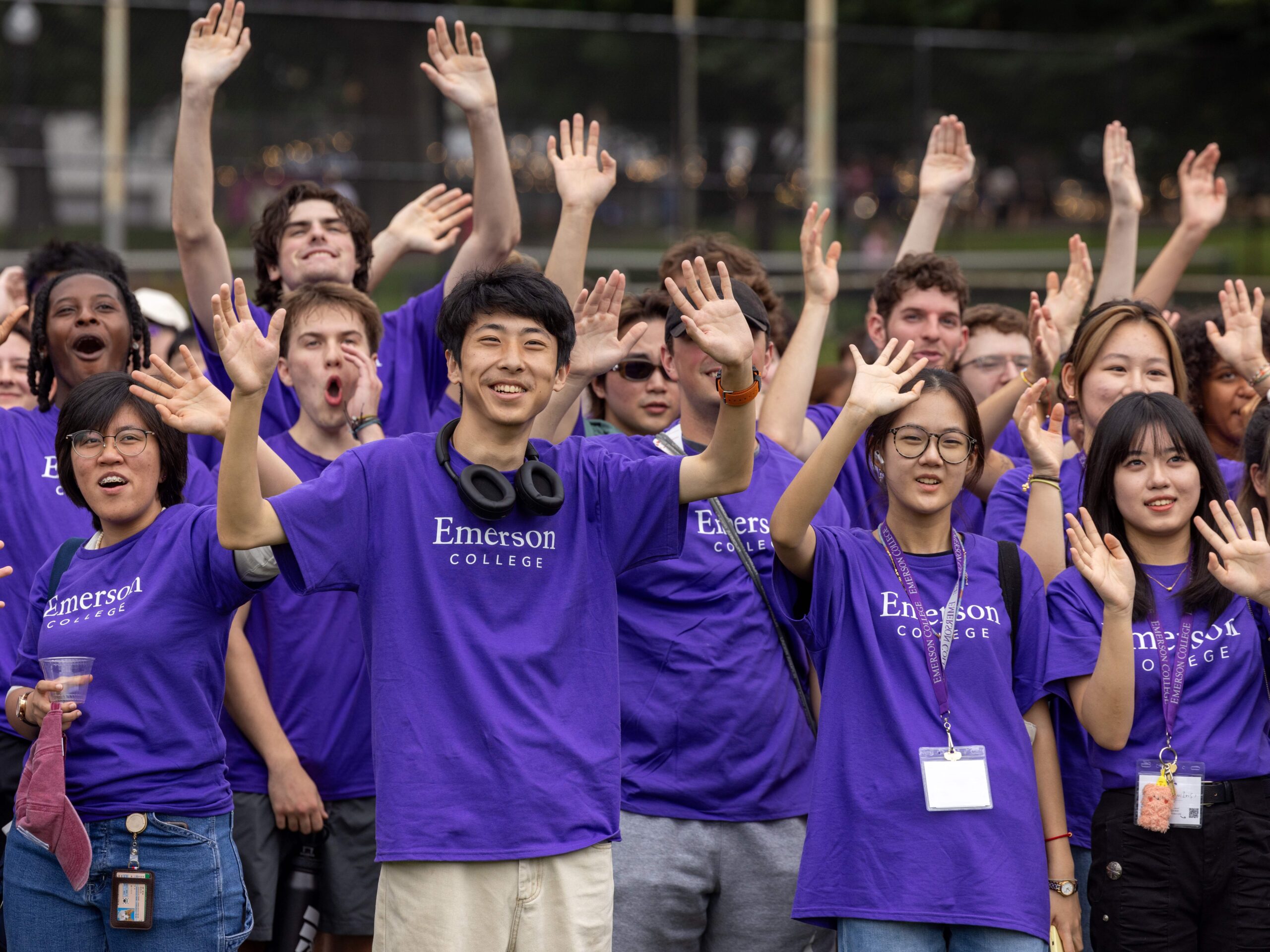
Parvathy’s and Robin’s experiences encompass both the rewards and challenges of studying abroad in the United States. From various academic differences to housing and visa requirements, each international student has their own story. But each student’s journey demonstrates their dedication to resilience, growth, and achieving their goals. Whether international students lean on faculty, friendships, or student organizations, their unique perspectives enrich the community, bringing us closer together. At Emerson, we believe our students are built to not only adapt in our vibrant community, but thrive.


Leave a Reply